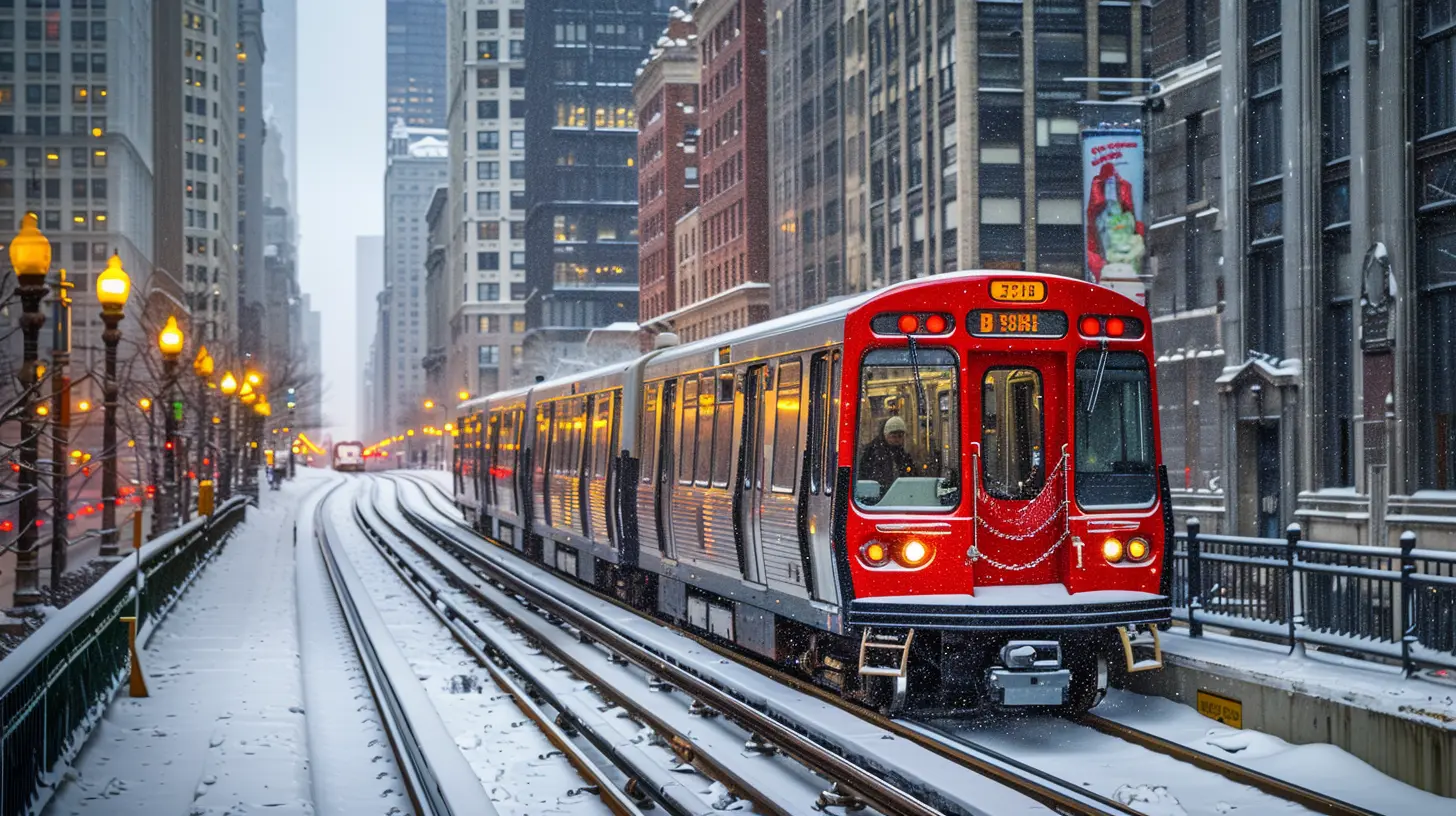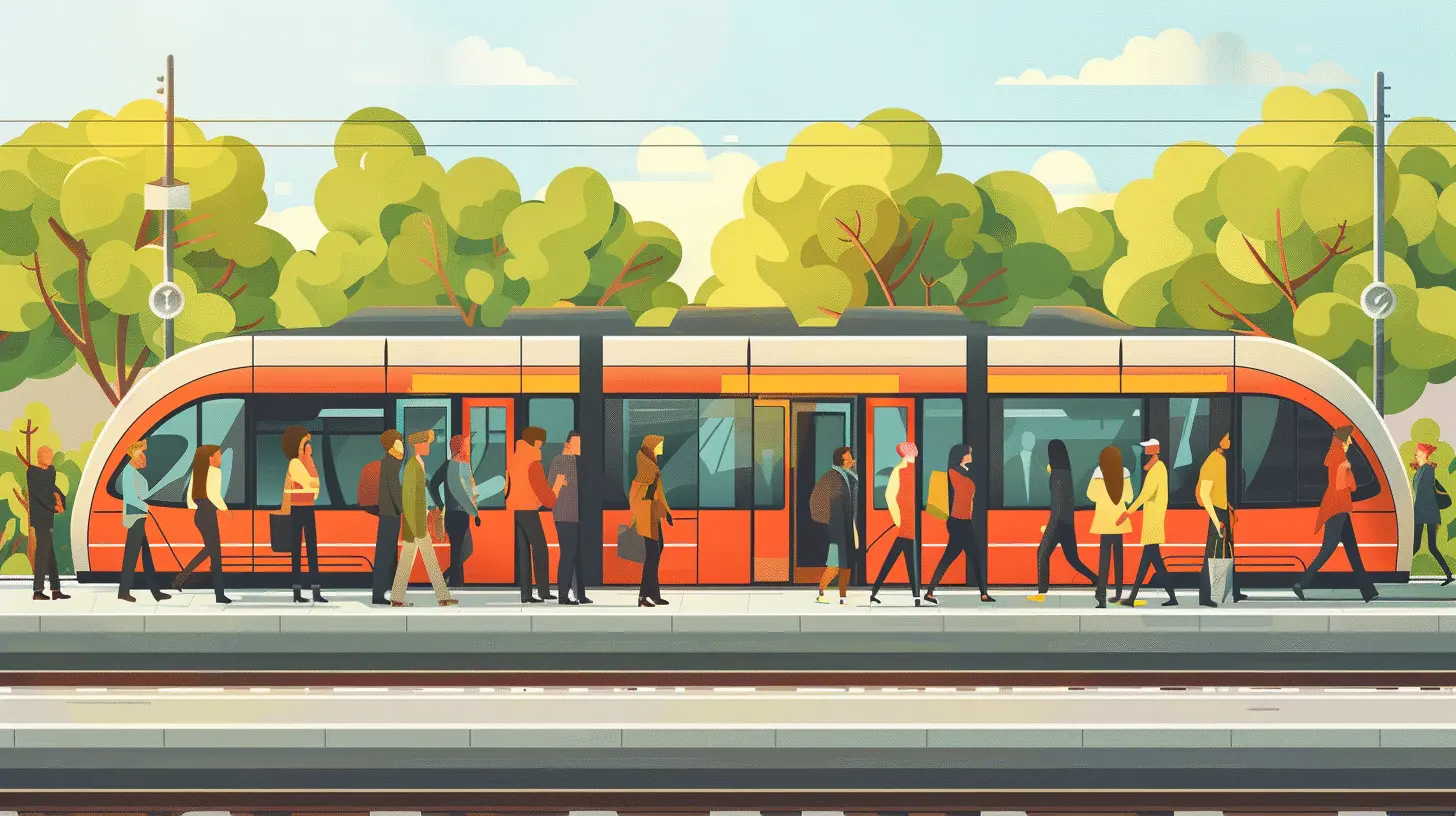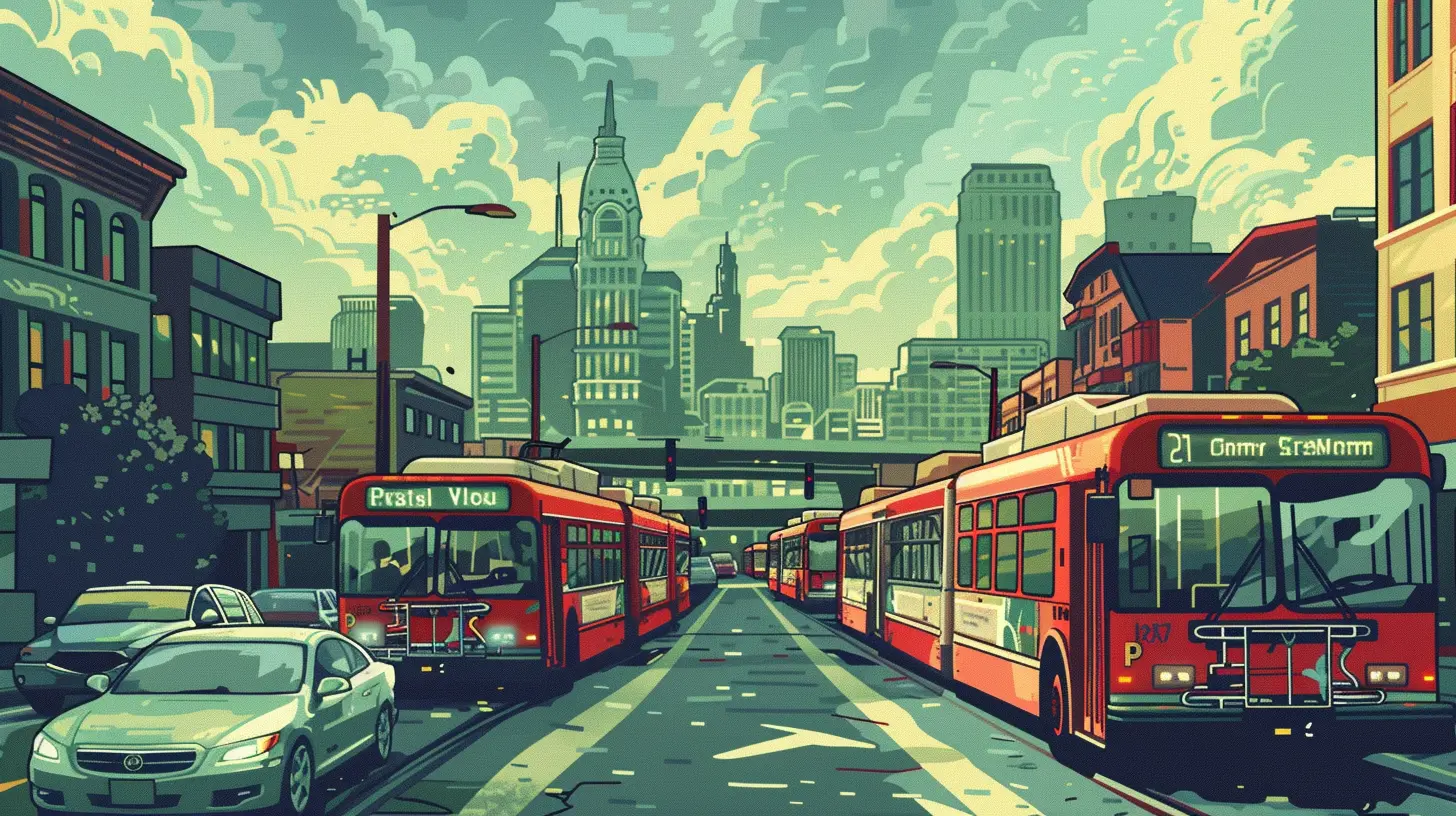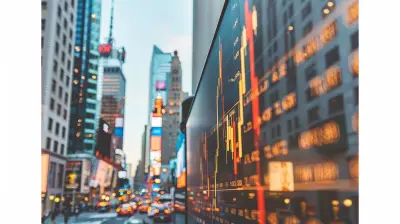How Public Transportation Inequality Aggravates Economic Disparities
25 December 2024
Let’s be honest: public transportation, or the lack thereof, is something we often take for granted unless we’re directly affected by it. Whether you’re catching a bus to get to work, hopping on the subway, or simply relying on ride-shares in areas where public options are slim-to-none, the way transportation works impacts our daily lives more than we give it credit for. But here’s the kicker—when public transportation systems fail or cater disproportionately to certain areas, the ripple effects are far more severe than just missing your Monday morning coffee. They perpetuate and worsen economic disparities. Let’s dive into how this unfolds.
Understanding Public Transportation Inequality
First, what even is public transportation inequality? I mean, isn’t public transit supposed to serve everyone equally? In theory, sure. But in reality, many factors—like route designs, pricing, accessibility, and frequency—can make some communities feel like they’re getting the short end of the stick. It’s essentially about imbalanced access to reliable and affordable transportation.Think about it: How can someone living in a low-income, underserved area thrive economically if they don’t have a decent way to get to work, a doctor, or even the grocery store? Spoiler alert—they can’t, and that’s where the problem starts.
The Role of Public Transportation in Economic Mobility
Transportation as a Bridge (Or a Barrier)
Imagine public transportation as a bridge between where people are and where opportunities lie. Jobs, education, healthcare, and essential services often aren’t in your backyard—you’ve got to get to them. Now, what happens when that bridge is crumbling for some people but perfectly paved for others? Exactly. Those without proper access are left stranded, figuratively and literally.For instance, people in suburban or affluent areas often enjoy well-funded transit systems with efficient train lines or frequent buses. Meanwhile, low-income communities might face spotty, irregular service—or no service at all.
If your bus only comes once every hour, and it’s always late, how do you explain that to your boss? Or what if you need three transfers to get to a job interview across town? That alone could cost someone the chance for a better job, which keeps them stuck in the cycle of lower income.
The "Time Tax" on Low-Income Communities
Low-income folks often bear the brunt of what some experts call the "time tax." What does that mean? It’s the idea that those with less money often spend more time commuting. Why? Because they live in areas with fewer transportation options or further away from booming business districts where jobs are concentrated.Let’s put it into perspective. Imagine this: Sarah, who lives in a bustling city center, can reach her workplace in 20 minutes by train. Meanwhile, Dave, who lives in a lower-income neighborhood on the outskirts, has to take two buses and a train, turning his commute into a 90-minute marathon. That’s two and a half hours every day, just spent commuting! Time that could’ve been spent with family, studying for a better qualification, or even getting some much-needed rest. Over time, this "time tax" adds up—and it’s costing people more than just hours.
How Public Transportation Inequality Perpetuates Poverty
High Costs of Travel
Here’s another kicker: public transportation isn’t always as “cheap” as it’s advertised to be—especially for those living paycheck-to-paycheck. In areas where public systems are unreliable, people might turn to alternatives like ride-shares or taxis, which cost significantly more.Even within transit systems, costs can be exclusionary. Multi-zone fares or peak-hour pricing disproportionately affect individuals who can’t afford flexibility. If you’re forced to work odd hours just to make ends meet, those peak-hour hikes hit harder than most realize.
Job Accessibility—or the Lack of It
Some jobs simply aren’t accessible without reliable public transit. This could be due to location, hours, or both. Many lower-wage jobs, like retail or warehouse work, don’t operate on a strict 9-to-5 schedule. Public transportation systems that cater to traditional work hours leave these workers stranded during late-night or early-morning commutes.This is a huge deal because if you can’t get to a job or are frequently late, chances are you’ll lose it. And let’s face it—not everyone has the luxury of owning a car or living close to work. Studies even show that long commutes are one of the biggest barriers to economic mobility. It boils down to this: no transportation, no job. No job, no money. No money, no progress.
The Intersection of Transportation and Race
We can’t talk about public transportation inequality without touching on its deeply rooted links to racial disparities. Historically, infrastructure decisions—like where to place highways or transit hubs—have disproportionately harmed communities of color.Take redlining, for example. This infamous practice didn’t just segregate housing; it also systematically excluded minority communities from good public transit services. Today, the legacy of these decisions lingers. Black and Latino neighborhoods are more likely to rely on public transportation, yet they often have the worst access to it.
The result? A vicious cycle. Limited transit means limited access to opportunities, perpetuating the racial wealth gap. It’s like playing a game of Monopoly where some players don’t even get a roll of the dice.
Why Fixing This Matters for Everyone
Let’s pause here for a second—because you might be thinking, “Well, that sucks for people in those areas, but how does this affect me?” The truth is, public transportation inequality impacts everyone. When people in underserved areas can’t access the resources they need, the entire economy takes a hit.Think about it—if workers can’t get to their jobs, businesses don’t have employees. If students can’t get to school, they don’t learn the skills needed for tomorrow’s workforce. And if communities remain disconnected, cities miss out on the potential growth those areas could bring.
Solutions: Building an Equitable Transit System
So, how do we fix this? The good news: solutions exist! The bad news: they require political will, funding, and a mindset shift. Here are a few ideas:1. Invest in Infrastructure
Cities need to ensure that ALL neighborhoods have access to reliable transportation—not just the more affluent ones. This could mean adding more bus routes, extending train lines, or even improving sidewalks and bike lanes. Sometimes small changes, like increasing frequency or investing in infrastructure maintenance, can make a huge difference.2. Affordable Fares
Transportation should be affordable for everyone, period. Subsidized fares or free transit passes for low-income residents could help remove barriers. Some cities already do this, and it’s a step in the right direction.3. Community Input
Who knows a community’s needs better than the people who live there? Engaging residents in transit-planning decisions ensures that solutions actually address the problems at hand. It’s not rocket science—just common sense.4. Focus on Equity, Not Just Equality
Here’s the thing: just because a city adds a new bus route doesn’t mean it’s addressing inequality. Equity means prioritizing investments in communities that have been historically underserved, not just spreading resources evenly across the board.Final Thoughts
At the end of the day, public transportation inequality isn’t just about buses and trains—it’s about opportunities, or lack thereof. It’s about people missing job interviews, losing hours of their day, or being shut out of the economy altogether. Fixing this isn’t just a moral obligation; it’s an economic necessity. After all, when more people have access to opportunities, everyone benefits.So the next time you hop on a bus or a train without a second thought, remember: for some, that access is a lifeline. And for others, it’s a bridge that desperately needs rebuilding.
all images in this post were generated using AI tools
Category:
Income InequalityAuthor:

Zavier Larsen
Discussion
rate this article
16 comments
Zanya Holland
This article highlights a crucial issue in urban planning and economic equality. Addressing public transportation disparities can significantly improve access to job opportunities and services for underserved communities. Solutions like equitable transit funding and improved routes could bridge gaps and foster economic growth for all. Great insights!
April 8, 2025 at 11:49 AM

Zavier Larsen
Thank you for your thoughtful comment! I completely agree that equitable transit funding and improved routes are essential for enhancing access and fostering economic growth in underserved communities. Your insights are much appreciated!
Sasha Hurst
Public transportation inequality significantly impacts economic mobility. Limited access to reliable transit options hinders job opportunities for low-income individuals, exacerbating existing economic disparities and perpetuating a cycle of poverty that is challenging to break.
March 30, 2025 at 11:39 AM

Zavier Larsen
Thank you for your insightful comment! Indeed, the lack of equitable public transportation access plays a crucial role in limiting job opportunities for low-income individuals, reinforcing systemic economic disparities and the cycle of poverty.
Elena Ellison
This article sheds light on a crucial yet often overlooked aspect of economic inequality. It’s fascinating how public transportation access—or lack thereof—can shape financial opportunities and community development. I’m eager to explore potential solutions that could bridge these gaps and foster greater equity.
February 3, 2025 at 7:50 PM

Zavier Larsen
Thank you for your insightful comment! I'm glad you found the connection between public transportation access and economic inequality compelling. Exploring solutions is essential for fostering equity in communities.
Soliel McClure
Public transportation inequality exacerbates economic disparities, limiting access to jobs and opportunities for underserved communities.
January 23, 2025 at 5:51 AM

Zavier Larsen
Thank you for highlighting this crucial issue. Addressing public transportation inequality is essential to promote equity and create better job opportunities for underserved communities.
Esme Hamilton
Great insights! It's crucial to highlight how public transportation affects economic opportunities. Bridging these gaps can truly uplift communities and foster more equitable growth for everyone. Keep up the good work!
January 19, 2025 at 7:47 PM

Zavier Larsen
Thank you! I appreciate your support and completely agree—addressing public transportation gaps is vital for fostering equitable growth in our communities.
Arwenia McKinstry
This insightful article highlights how disparities in public transportation access exacerbate economic inequality, underscoring the need for equitable infrastructure to foster inclusive growth. Great read!
January 16, 2025 at 9:10 PM

Zavier Larsen
Thank you for your thoughtful feedback! I'm glad you found the article insightful and appreciate your emphasis on equitable infrastructure.
Hudson Oliver
This article highlights a crucial yet often overlooked issue. It's fascinating how public transportation access can shape economic opportunities. I’d love to explore innovative solutions that could bridge this gap and promote equitable growth for underserved communities. What are your thoughts?
January 13, 2025 at 7:34 PM

Zavier Larsen
Thank you for your insightful comment! I completely agree—innovative solutions like improved transit routes, partnerships with rideshare services, and community-focused planning can significantly enhance access and promote equity. Let’s continue the conversation!
Rhett McLean
Great insights! Addressing transportation gaps could significantly boost economic equity.
January 11, 2025 at 4:55 AM

Zavier Larsen
Thank you! Absolutely, closing transportation gaps is crucial for fostering economic equity and creating more opportunities for all.
Nicholas McIlwain
Public transit gaps widen the economic divide—so true!
January 2, 2025 at 11:22 AM

Zavier Larsen
Thank you for highlighting this crucial issue! Public transit gaps can significantly limit access to jobs and resources, exacerbating economic inequalities.
Samuel McGarvey
Access to reliable public transportation is crucial for equitable economic opportunities and community growth.
December 30, 2024 at 4:49 AM

Zavier Larsen
I completely agree! Reliable public transportation is essential for ensuring everyone has equal access to job opportunities and resources, ultimately fostering community growth and reducing economic disparities.
Arwen McEvoy
Insightful link between transit and inequality!
December 29, 2024 at 3:27 AM

Zavier Larsen
Thank you! I'm glad you found the connection insightful. Addressing transit inequality is crucial for reducing economic disparities.
Ivan Wilkerson
Transportation access is vital for equity.
December 28, 2024 at 5:39 AM

Zavier Larsen
Absolutely, equitable transportation access is essential for creating opportunity and reducing economic disparities.
Duke Pope
This article highlights a crucial yet often overlooked issue. Public transportation inequality not only limits job access for disadvantaged communities but also perpetuates the cycle of poverty. Addressing this gap is essential for fostering true economic equality.
December 27, 2024 at 8:46 PM

Zavier Larsen
Thank you for your insightful comment! I completely agree that addressing public transportation inequality is vital for breaking the cycle of poverty and promoting economic equality.
Phaedron McDowney
Public transportation is a vital lifeline for economic mobility. Addressing its inequality isn't just a matter of equity; it’s essential for sustainable growth. By investing in accessible transit systems, we can bridge economic divides, empower communities, and unlock potential for all. Let's prioritize equitable transit solutions!
December 27, 2024 at 5:41 AM

Zavier Larsen
Thank you for highlighting the crucial role of public transportation in fostering economic mobility. Your point on investing in accessible transit systems is vital for promoting equity and sustainable growth. Let's indeed prioritize these solutions for a more equitable future.
Hope McCarron
Essential insights on transport's economic impact!
December 26, 2024 at 7:33 PM

Zavier Larsen
Thank you! I'm glad you found the insights valuable in highlighting the connection between transportation and economic disparities.
Solara McClain
This article highlights a crucial issue—public transportation inequality not only affects mobility but also deepens economic disparities, limiting opportunities for many in underserved communities.
December 25, 2024 at 8:15 PM

Zavier Larsen
Thank you for highlighting this important perspective! Addressing public transportation inequality is essential for fostering economic equity and expanding opportunities for all communities.
MORE POSTS

The Key Differences Between Scalping and Day Trading

How to Build a Diversified Dividend Portfolio

The Role of News and Media in Day Trading Decisions

Understanding Mortgages: Fixed vs. Variable Rate Loans

Understanding Fixed vs. Variable Interest Rates

How to Conduct a Financial Feasibility Study for New Projects

The Legal and Ethical Challenges of Crypto Adoption

Financial Myths That Could Hurt During an Economic Downturn

How to Avoid Common Cash Flow Pitfalls

Estate Tax Planning: How to Protect Your Wealth for Future Generations